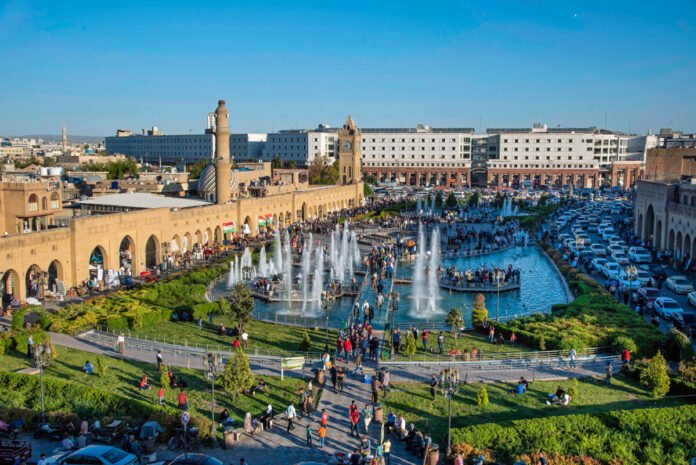The Kurdistan Region’s Runaki power project cuts harmful gases by 30%, marking a major step toward cleaner air. The project has already shut down over 2,000 private generators and now targets 24-hour electricity for everyone by 2026.
Officials say the impact on air quality is clear. Sanaan Abdullah, spokesperson for the Board of Environmental Protection and Improvement, confirmed on Tuesday that emissions have dropped sharply. “The environment is cleaner now. Harmful gas levels are down by 30% since the project began,” he said.
Abdullah described the progress as fast and measurable. He believes the improvement will continue as more generators go offline. “In just a short time, we’ve seen a high rate of reduction. Air quality will improve even more in the next two years,” he added.
The Runaki power project cuts harmful gases by 30%, but it also transforms how people receive electricity. For decades, neighborhoods relied on loud, polluting generators. Now, the goal is to phase them out and bring in constant, clean electricity across the region.
This initiative is a major part of the KRG’s ninth cabinet agenda. Prime Minister Masrour Barzani has made environmental reform a top priority. Abdullah confirmed this focus, saying, “Cleaning the environment is one of our government’s key goals.”
The new environmental policy comes with stronger rules. The KRG now monitors refineries, housing projects, and public spaces more closely. No business can open without clearance from the Environment Board. “Even restaurants and cafeterias must meet our standards before receiving a license,” Abdullah explained.
Since its launch, the project has already helped over two million residents and 90,000 businesses. Official numbers show that 2,107 neighborhood generators have been shut down. The government plans to eliminate over 7,000 units by the end of 2026.
The Runaki power project cuts harmful gases by 30%, and the public is beginning to notice the change. Residents in major cities report cleaner air and less noise. Families also welcome the promise of stable electricity without interruptions.
Officials say that once the full network is in place, every home and commercial building will have continuous power. That progress will not only help the environment—it will also reduce health risks tied to air pollution.
With more generators set to shut down and renewable energy on the horizon, the Kurdistan Region moves closer to a cleaner and more modern energy future.

